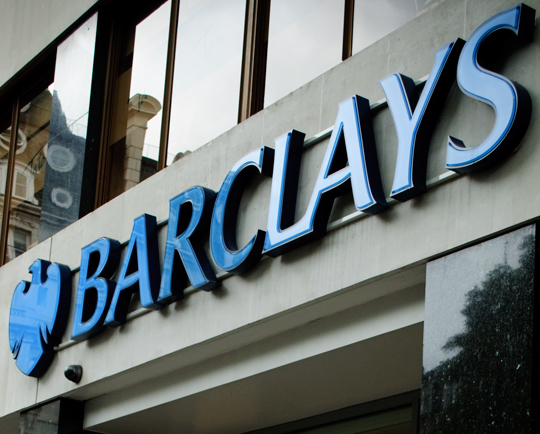Experienced Investor
What to look out for in next week’s UK banking results

After a tough start to the year, all eyes will be on the UK banking sector next week with Lloyds, RBS and Standard Chartered all announcing their results for the first quarter of 2016, while HSBC will announce its update the week after.
In the run up to these results, Hargreaves Lansdown’s senior analyst Laith Khalaf says the omens are not great. Just a few weeks ago Barclays quietly slipped a trading update, which sounded a warning over its investment bank. Since then, major Wall Street players, like Bank of America and Citigroup, have reported weak performance from their investment banking operations.
Since the start of 2016 Khalaf notes that the shares of UK banks have been hit by a “triple whammy of negative interest rates, fears over defaults in the oil and mining sectors, and concerns over a global economic slowdown”.
While these worries have abated of late, and while global banking stocks, and indeed the FTSE 100, have made up a lot of ground on the start of the year, Khalaf adds the share prices in the UK banking sector continue to flounder.
With this in mind Khalaf provides five themes to look for in next week’s results:
Sacked in the city
“Investment Banking remains difficult. Barclays has already signalled it’s not going to report a bumper start to the year for their investment bank, and it doesn’t look too promising for RBS, HSBC and Standard Chartered. In a sign of the times in the city, Japanese securities giant, Nomura, is reported to be poised to shut large parts of its investment banking operations, in a retrenchment that will see hundreds of jobs lost, many of them in London. Lloyds doesn’t have to carry this particular millstone, which goes some way to explaining why it has held up better than its peers so far this year. Hopefully the drag will reduce over time as the banks look to reduce exposures to investment banking activities.”
Bad debts – benign at home
“We don’t expect to see UK banks suffering too badly from bad debts any time too soon. With interest rates where they are, and employment generally strong, most borrowers can meet their payments. Where we may see an upturn is bad debts in lending to the energy sector. US banks are starting to see higher defaults from energy companies that borrowed when oil prices were high. Fortunately, one side effect of the financial crisis has been a big retrenchment exercise by the banks, to refocus back onto more plain vanilla banking activities, with lower overseas exposure. HSBC and Standard Chartered though have big Asian exposures and concerns have been mounting over the high leverage in the Chinese economy, estimated to be over 200% of GDP. Investors need to be alert for signs of any deterioration in loan performance here.”
PPI – enough is enough?
“Regulatory claims have been a huge drain on profits in recent years. At the full year stage, a number of banks, including Barclays, Lloyds and RBS increased their provisions for PPI compensation costs but said they believed that would now be sufficient to cover all remaining potential claims. Hopefully, they will still believe that this is the case.”
Sale of government shares – shelved for now
“The Retail Offer in Lloyds Banking Group was shelved during the market weakness around the start of the year. The stock is still below the level the government paid for its stake, so we do not expect that situation to change in the near term. Meanwhile RBS warned at their final results that ongoing uncertainty over future fines was a major factor behind delaying the resumption of dividends. It has yet to announce any sort of comprehensive settlement over US mortgage-backed securities litigation, so it seems premature to entertain hopes of any return to the dividend list before 2017 at the earliest. And return to fully private ownership loiters some way beyond that.”
Brexit
“Brexit adds huge uncertainties. Opinion is divided over how much impact a vote to leave the EU would have on the City and UK financial services in general. But very few voices are suggesting it might be a positive, and this is perhaps why the UK sector has not joined in the broader global banking recovery. A report by Capital Economics, commissioned by Woodford Investment Management, concluded that the UK financial services sector had more to lose than most industries, especially if passporting rights were to be lost. In the longer term though, the report stressed that the City’s success was down to a lot more than simple unfettered access to the single market.”